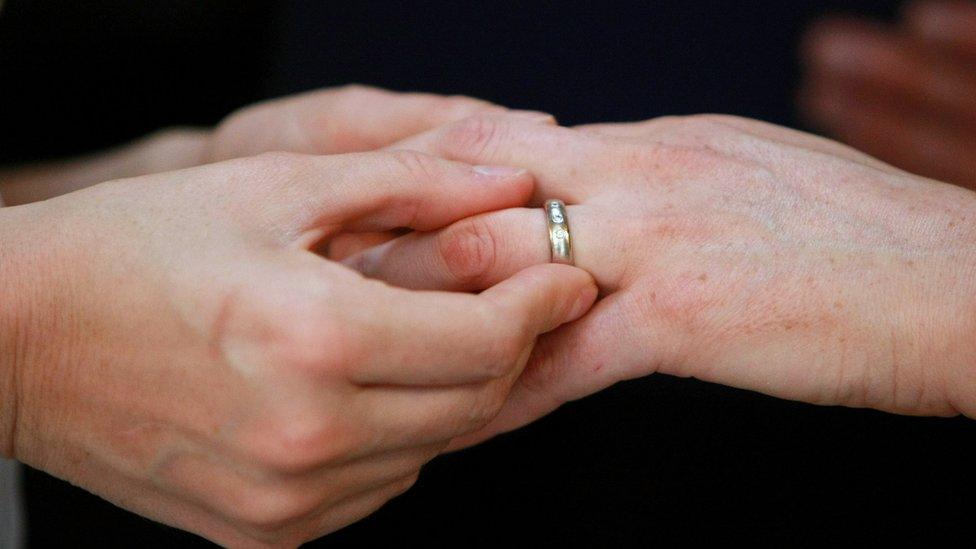Same-sex marriage: Belfast court told gay couple's marriage is 'devalued' in NI
- Published

Two men from Northern Ireland, who wed in England last year, have begun a legal challenge to Northern Ireland's status as the only part of the UK that does not recognise their marriage
A gay couple's marriage has been "devalued" by the fact that it is not legally recognised when they are home in Northern Ireland, a court has heard.
The couple, who were married in England last year, have begun a court challenge to Northern Ireland's marriage laws.
It is the only part of the UK and Ireland that bans same-sex marriage.
Their barrister said they were stripped of lawful marriage at home, with their rights "returning and disappearing" as they cross state lines.
The couple have taken a case at the High Court in Belfast in an attempt to get the court to declare that their marriage remains fully constituted throughout the UK.
The men, who want full legal recognition as spouses rather than civil partners, claim that failure to recognise their marriage within the UK amounts to unlawful discrimination.
Blocking mechanism
The couple cannot be named as they have been granted anonymity by the court but their legal action is being supported by the gay rights group, The Rainbow Project.
Last week, Stormont MLAs voted to support the introduction of gay marriage, but it was vetoed by the Democratic Unionist Party (DUP) using a blocking mechanism known as a petition of concern.
Opening the court case on Monday, the couple's barrister said: "The petitioner and his spouse find themselves in a particularly arbitrary situation where lawful marriage is stripped from them whenever they reside in Northern Ireland, returning and disappearing as they cross state lines."
She said the petitioner "takes the view that his marriage has been demeaned, devalued and undermined by virtue of the (society) in which he lives".
She added that the couple's legal status was "perplexing and distressing" and "caused them to feel acute embarrassment and alienation".
In a sworn statement submitted as part of their case, the couple set out their future plans to adopt children, saying they believed marriage offered the most appropriate relationship and best foundation for a family.
Their barrister said most people struggle to understand why they are not married in Northern Ireland.